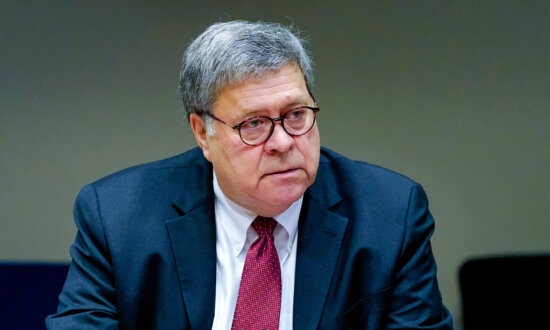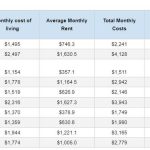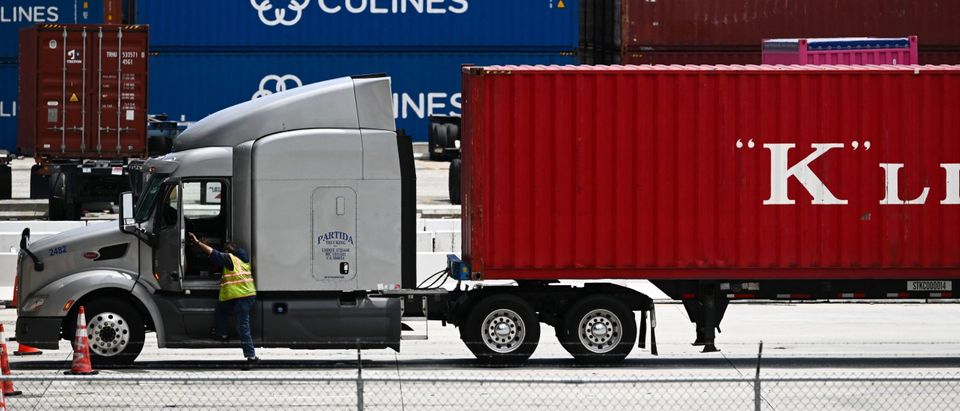President Trump ordered the declassification of Justice Department documents related to the FBI’s Crossfire Hurricane investigation into allegations of Trump-Russia collusion as one of his final acts in office.
The White House issued a memo Tuesday night, on the eve of President-elect Joe Biden’s inauguration, in which Trump said the Justice Department provided the White House with a “binder of materials” tied to the Trump-Russia investigation on Dec. 30.
The memo said, “Portions of the documents in the binder have remained classified and have not been released to the Congress or the public. Trump “requested the documents so that a declassification review could be performed and so I could determine to what extent materials in the binder should be released in unclassified form,” the memo added.
The president “determined that the materials in that binder should be declassified to the maximum extent possible,” the memo said. But, as part of the “iterative process of the declassification review,” the FBI said on Sunday that the bureau had a “continuing objection to any further declassification of the materials in the binder” and “on the basis of a review that included Intelligence Community equities, identified the passages that it believed it was most crucial to keep from public disclosure,” according to the memo.
Trump said he would “accept the redactions proposed for continued classification by the FBI.”
“I hereby declassify the remaining materials in the binder,” Trump said in the memo, addressed to FBI Director Christopher Wray, Director of National Intelligence John Ratcliffe, and acting Attorney General Jeffrey Rosen. “This is my final determination under the declassification review and I have directed the Attorney General to implement the redactions proposed in the FBI’s Jan. 17 submission and return to the White House an appropriately redacted copy.”
The documents were not immediately made public. The White House directed the Washington Examiner to the FBI, which declined to comment. The Justice Department did not immediately respond.
The disclosure is the latest salvo in the controversy that engulfed the first half of Trump’s presidency. The “witch hunt,” as Trump calls it, began with the FBI opening up an investigation into his campaign’s ties to Russia in the summer of 2016. That inquiry, code-named Crossfire Hurricane, was wrapped into Robert Mueller’s special counsel investigation, which began after Trump fired FBI Director James Comey in May 2017. After two years of investigating, Mueller’s team released a report in an April 2019 that said investigators “identified numerous links between the Russian government and the Trump Campaign” but “did not establish that members of the Trump Campaign conspired or coordinated with the Russian government in its election interference activities.”
Trump previously called for all of the Russia investigation documents to be made public.
“I have fully authorized the total Declassification of any & all documents pertaining to the single greatest political CRIME in American History, the Russia Hoax. Likewise, the Hillary Clinton Email Scandal. No redactions!” Trump tweeted in October, adding that “all Russia Hoax Scandal information was Declassified by me long ago.”
But following a federal court order, Trump’s chief of staff, Mark Meadows, told a judge that month that the president’s tweets were not declassification orders.
Trump said Tuesday that his declassification “does not extend to materials that must be protected from disclosure pursuant to orders of the Foreign Intelligence Surveillance Court” and that the acting attorney general “has conducted an appropriate review to ensure that materials provided in the binder may be disclosed by the White House in accordance with applicable law.”
Justice Department Inspector General Michael Horowitz released a report in December 2019 that said the FBI inquiry was properly predicated but nevertheless criticized the Justice Department and FBI for 17 “significant errors and omissions” related to the Foreign Intelligence Surveillance Act warrants against former Trump campaign associate Carter Page and for the bureau’s reliance on British ex-spy Christopher Steele’s discredited and Democratic-funded dossier.
Declassified footnotes from Horowitz’s report indicate that the bureau became aware that Steele’s dossier may have been compromised by Russian disinformation, and FBI interviews show Steele’s primary subsource undercut the credibility of the dossier. Horowitz said that Steele’s main source “contradicted the allegations of a ‘well-developed conspiracy’ in” Steele’s dossier.
U.S. Attorney John Durham, who was elevated to special counsel in the fall, is investigating the origins and conduct of the Trump-Russia investigation. He and now-former Attorney General William Barr released statements saying they disagreed with the Justice Department inspector general’s determination that the opening of the Trump-Russia investigation was justified.
FBI lawyer Kevin Clinesmith admitted to Durham this summer that he falsified a document during the bureau’s efforts to renew its FISA authority to wiretap Page, editing a CIA email in 2017 to state that Page was “not a source.”
Ratcliffe declassified handwritten notes from former CIA Director John Brennan in October showing he briefed then-President Barack Obama in 2016 on an unverified Russian intelligence report claiming former Secretary of State Hillary Clinton planned in July 2016 on tying then-candidate Trump to Russia’s hack of the Democratic National Committee to distract from her improper use of a private email server. He also declassified a September 2016 CIA counterintelligence referral on the allegations to Comey and fired FBI special agent Peter Strzok.
That move was met with a backlash from Democrats and some national security veterans, with Brennan saying that “his selective declassification of information … is designed to advance the political interests of Donald Trump.” At the time, Ratcliffe released a statement saying that “this is not Russian disinformation.”
Ratcliffe said in October that his office had provided almost 1,000 pages of materials to the Justice Department in response to Durham’s document requests.
The January 2017 intelligence community assessment on Russian meddling from the CIA, the NSA, and the FBI concluded with “high confidence” that Russian President Vladimir Putin “ordered an influence campaign in 2016” and that Russia worked to “undermine public faith in the U.S. democratic process, denigrate former Secretary of State Clinton, and harm her electability and potential presidency” and “developed a clear preference for President-elect Trump.” Adm. Mike Rogers of the NSA diverged from Brennan and Comey on one key aspect, expressing only “moderate confidence” rather than “high confidence” that Putin “aspired to help” Trump’s election chances by “discrediting” Clinton.
The Senate Intelligence Committee released a bipartisan report in April defending the 2017 assessment, saying it “presents a coherent and well-constructed intelligence basis.” But a report from the Republicans leading the House Intelligence Committee in 2018 concluded that “judgments on Putin’s strategic intentions did not … employ proper analytic tradecraft.” Ratcliffe sent the intelligence community’s watchdog an investigative referral related to that House GOP report in the fall.
Author: Jerry Dunleavy, Justice Department Reporter
Source: Washington Examiner: Trump declassifies binder of Russia investigation documents on eve of Biden inauguration



 93,267
93,267









